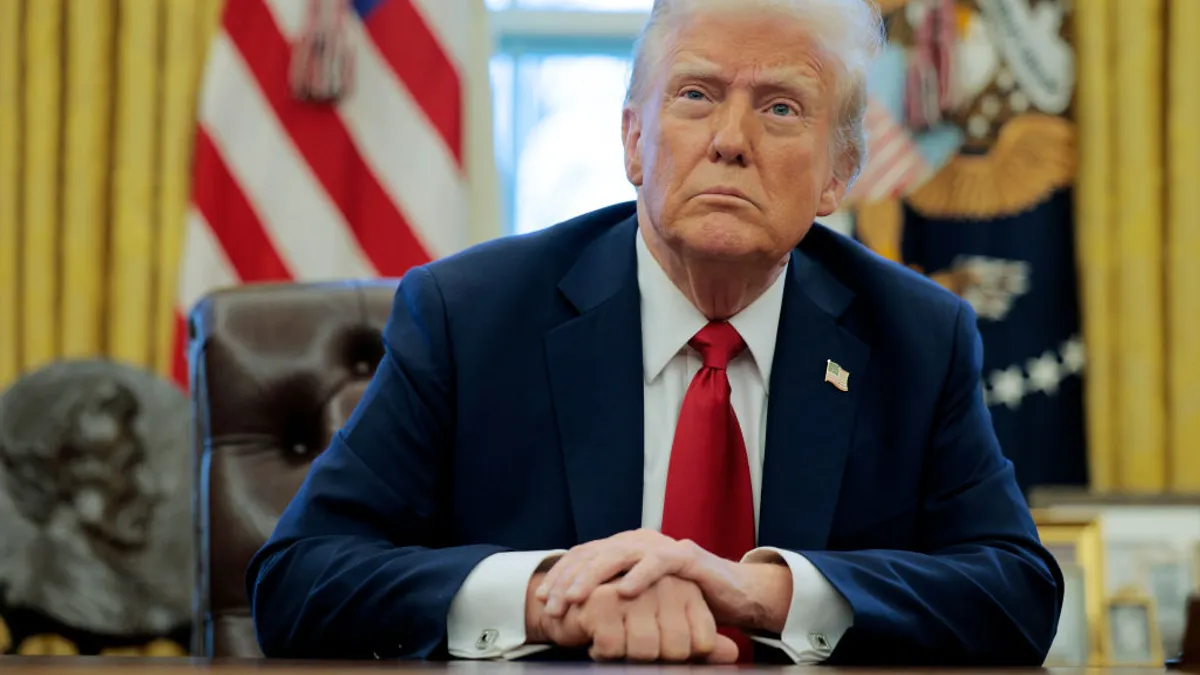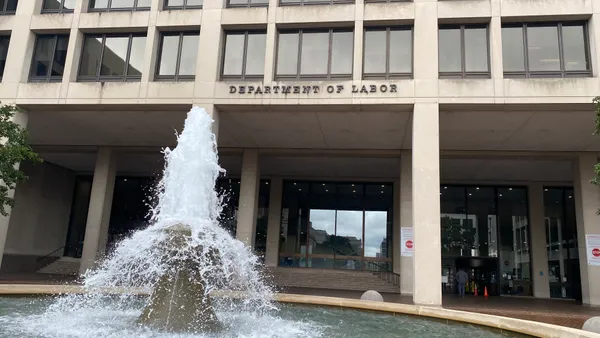Dive Brief:
- A California federal judge on Monday barred the Trump administration from enforcing three provisions from its anti-DEI and “gender ideology” executive orders against a group of nonprofits that serve LGBTQ+ individuals and rely heavily on federal funding.
- The contested provisions in the orders likely violate plaintiffs’ rights under the First Amendment, Fifth Amendment and Separation of Powers, U.S. District Court Judge Jon Tigar found (San Francisco A.I.D.S. Foundation v. Trump).
- “While the Executive requires some degree of freedom to implement its political agenda, it is still bound by the Constitution,” Tigar wrote. “And even in the context of federal subsidies, it cannot weaponize Congressionally appropriated funds to single out protected communities for disfavored treatment or suppress ideas that it does not like or has deemed dangerous.”
Dive Insight:
The plaintiffs in the case include the San Francisco AIDS Foundation, the Baltimore Safe Haven Corp., the Los Angeles LGBT Center, the San Francisco Community Health Center and more. The groups provide healthcare, social services and advocacy for LGBTQ+ communities, according to the order, and hail from mainly the West and East Coasts.
Tigar specifically barred enforcement of three provisions of the executive orders: one provision directing agencies to terminate funding for all “equity-related grants or contracts,” and two provisions directing agencies to terminate funding for any programs that “promote gender ideology.”
The plaintiffs also challenged a provision requiring them to certify they do not “operate any programs promoting DEI that violate any applicable Federal anti-discrimination laws,” but Tigar found they were unlikely to succeed in their challenge because they had not shown the provision targeted activity beyond what was already illegal.
The Trump administration requested the court stay the injunction until it could seek an “emergency, expedited stay” from an appeals court, but Tigar rejected the request as procedurally improper. He likewise rejected a request for an administrative stay.
The case is the latest win for those challenging Trump’s executive orders through the courts — although success in this arena has ping-ponged between the administration and its challengers through the appeals process.
In February, for example, a federal judge blocked parts of Trump’s anti-DEI order in National Association of Diversity Officers in Higher Education v. Trump, similarly finding plaintiffs were likely to succeed on their First and Fifth Amendment claims. But less than a month later, the 4th U.S. Circuit Court of Appeals stayed that decision, allowing enforcement of the order to continue.












